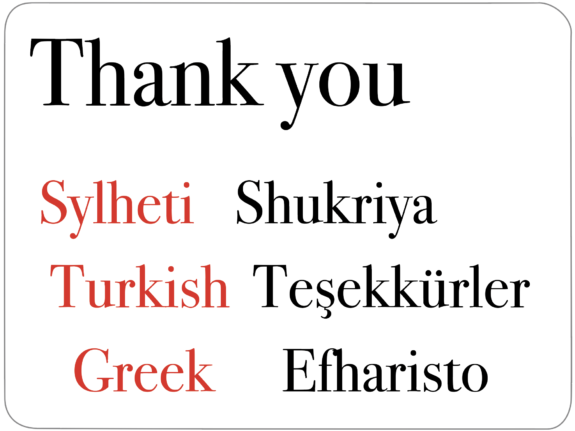
Language from the heart
Bilingual, trilingual, multilingual families
Children need to hear language like they need food, drink, warmth and shelter. The language needs to be from the heart. Which language it is is less important. The first language provides a template which can be ‘copied across’ for another, possibly more widely spoken, language. A ‘heritage language’ can be essential for conversation with grandparents and other members of the extended family. The first language experience can’t start too soon.
In many families all over the world, in perhaps a quarter or a third of all families in the major cities, the first language of the parents is not that of the host community. They may speak different languages from one another.
Everyone wants their children to get on in life. Which language should they speak to the children? What if the grandparents speak a different variety of their language – a very real possibility if the parents have moved from the country to a main city?
By far the most important consideration is that parents should always speak to their children in whatever language is most natural to them. Even for those who speak more than one language very well, there is almost always one first language. And that is usually the language that was learnt first, usually from the mother.
The language of the host community can be learnt at school, in the playground, on the way to school and on the way home, with friends and neighbours.
Children can manage with two languages. The natural human system for language acquisition can manage with that. Three languages may be pushing the system to the limit. But the important thing is that children experience language from birth onwards. What they are learning is not just the names of things, or just please and thank you and the words for what they most like to eat, but how to talk, how to put the words together in meaningful ways.
Food is important. What should be eaten, and when? And what should not be eaten? But conversation can range far more widely. Children need to hear and be part of conversations about all the important things in life – the things that are important to you. What is it fun to do? And just as importantly: What is it unsafe to do? Which places should be avoided? Who do you like? And why? What do you think of which people on TV? What is the best music in the world? What is the best football team? What should be worn and said when? And as children get older they will be asking (themselves at least): Why?
From the range of conversation children learn the full apparatus of the language faculty.

